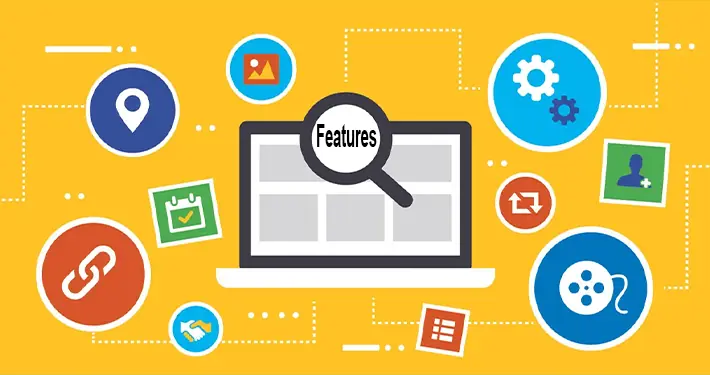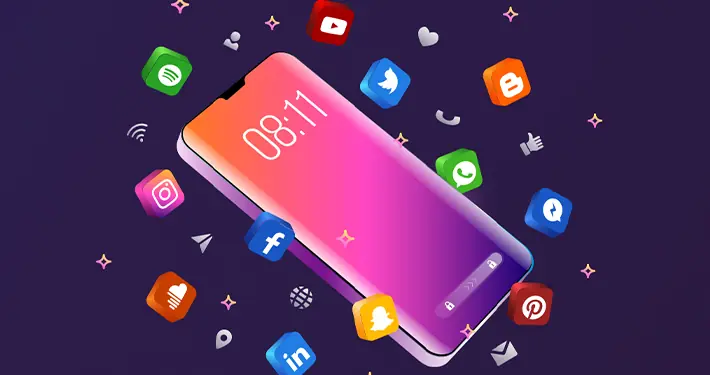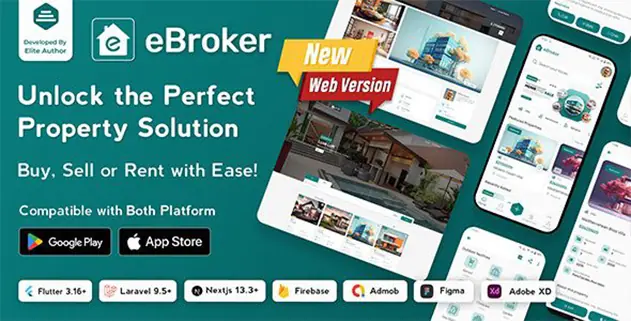eBroker 1.1.4 – Real Estate Property Buy-Rent-Sell Flutter app
eBroker – Real Estate Property Buy-Rent-Sell Flutter app with Laravel Admin Panel | Web Version Nulled Free Download CodeCanyon 23505470.

eBroker 1.1.4 – Real Estate Property Buy-Rent-Sell Flutter app Features
- A complete fully working system.
- Customer App (Android) & AppStore (iOS) Flutter code.
- An Admin Panel Dashboard
- Database
- Constant development with regular updates.
- Clean, well-structured and maintainable code
- Active customer support to help.
- Value for money system.
- Flexible prices, no surprises
- Register/Login with email/password
- Set your purpose to use this app
- List features properties
- Fetch properties based on location
- Filter properties
- Search Properties
- View Property Details with multiple images by types and 360° images
- Share/Save Properties
- Property location with navigate option
- Report Property/User
- See nearby utilities and distance
- Multiple property details parameters
- Contact Property admin (Chat/Call)
- Share property details in chat
- Enquire Info, Watch Video, Schedule Tour
- Chat with property owner
- Submit/Receive Tour Requests : Accept/Decline/Complete
- FAQ Categories and FAQs
- Submit Support Request
- Upload property with all the details like location, address, about, images, utilities etc.
What is a Mobile App
A mobile app, or mobile application, is a specialized type of software created for mobile devices, such as smartphones and tablet computers. In contrast to conventional desktop or laptop applications, mobile apps are tailored to leverage the unprecedented reach, portability, touchscreen interfaces, and diverse functionalities of mobile platforms.
Mobile apps fall into three main categories: hybrid, native, and web apps. A native app is a software application developed specifically for one mobile device operating system (OS), while a native and web application can each run on more than one OS.
The Apple App Store was pivotal in popularizing mobile applications, offering a vast array for iPhone, iPad, and iPod Touch users. Now, Google Play Store has overtaken the App Store in terms of the number of available apps. These app stores are home to the world’s iOS and Android apps.

Examples of mobile apps include gaming apps that entertain, productivity apps that make tracking and accomplishing work easier, ecommerce applications, and health-tracking apps to maintain people’s mental and physical well-being.
Users are not the only ones who benefit from applications. More businesses and organizations are building mobile apps to generate more income or scale their operations. These entities develop apps independently, scout for outsourced talent, hire freelancers, or collaborate with app agencies to succeed in their goals.
One key industry that leverages mobile apps for growth is e-commerce. There are many examples of ecommerce companies that have gone mobile. One relevant instance is when MyDeal collaborated with Appetiser Apps to maintain industry competitiveness in the face of user migration from desktops to smartphones.

